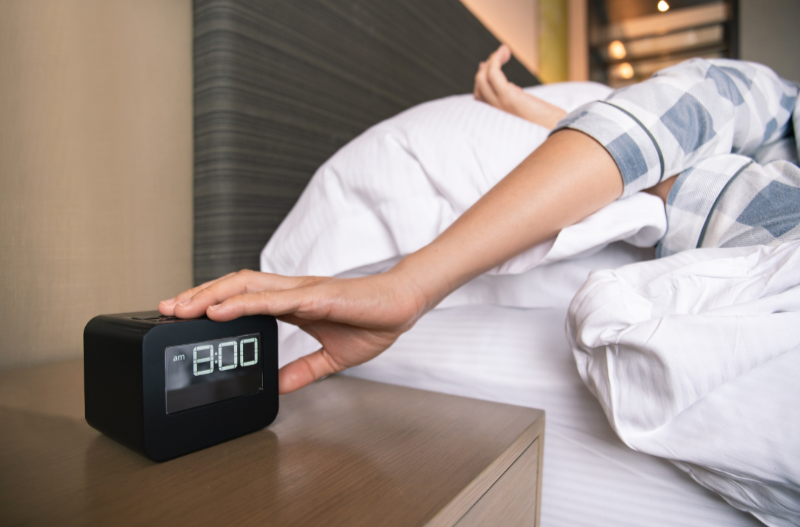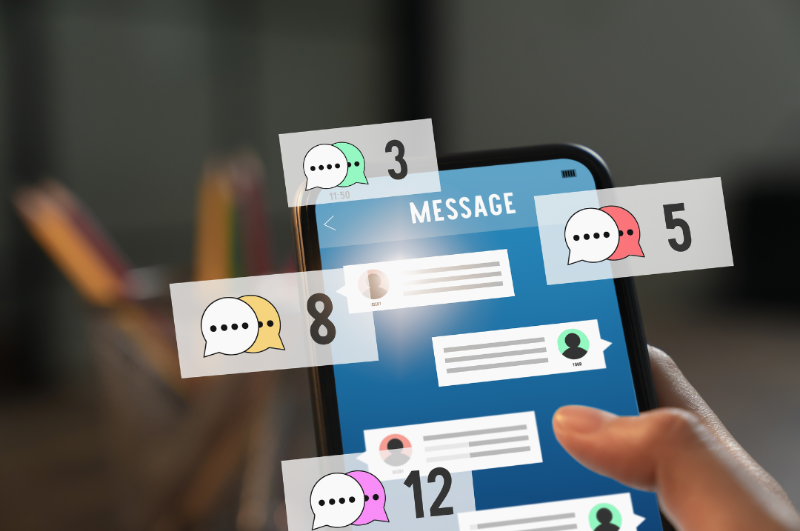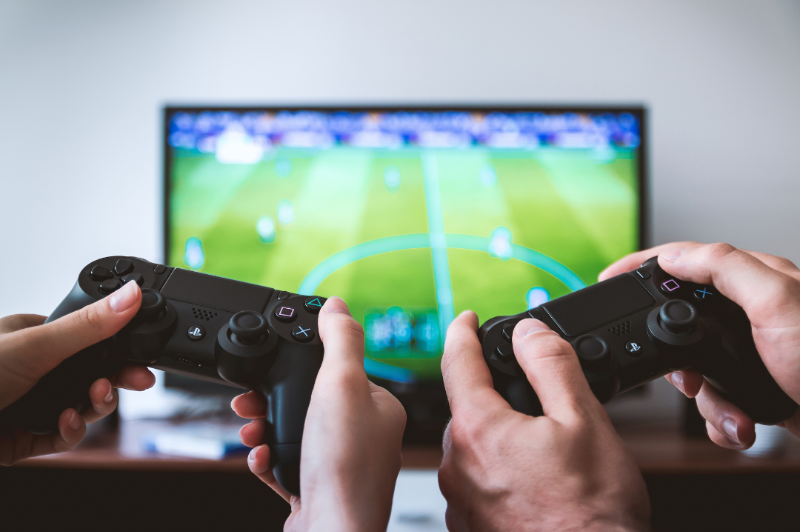HayU Blog
Digital Wellness for College Students
July 1st, 2025
As parents we spend much of the 18 years that we have our kids under our roof preparing them to be independent enough to live away from home. These days, that includes teaching teens how to manage their life online and helping them to make wise choices as digital citizens.
It’s true that once they leave for college, what they do with their technology is out of our control. But, that doesn’t mean we can’t prepare them to make healthy choices once no one is there to oversee them. Don’t forget, that prefrontal cortex isn’t developed until age 25! So while they may seem all grown up, they are in fact still developing and therefore more susceptible to the magnetic pull of the online world.
While smartphone and tech overuse can have various negative outcomes, the 3 ways in which tech most often interferes with a healthy college experience are:
- Sleep Deprivation

- Creating a wall of familiarity or comfort to hide behind - delaying in-person social connections
- Hindering academic performance through distraction and procrastination
Taking a little time to prompt your teen to consider these questions in advance can help them to be more mindful once they arrive at school. Let’s look at some of what you’ll want to discuss with your rising college freshman
Issue: How To Create Healthy Physical Boundaries with Tech

Even if your high school senior already enjoys a good deal of autonomy, there are invisible boundaries that help to keep tech at bay at least somewhat - whether it’s family rules and expectations or school restrictions. Once our children go off to college, any external boundaries or limits that existed on their phone use disappear. One of the main ways this can negatively impact our college students is their sleep. In a tiny dorm room, while missing home or feeling anxious, teens are primed to stay up way too late on their phones. Sleep deprivation is at epidemic proportions in teens and young adults leading to higher rates of anxiety, depression, accidents and stress. The adjustment to a new college environment will be far more stressful in all ways for a kid who is sleep deprived.
Solutions:
- Develop the habit of using Do Not Disturb or Sleep Mode settings on the phone at night.
- Buy an ‘unplug box’ or Bagby to store the phone overnight while it charges - just adding a little distance (or ‘friction’) makes a difference!
- Buy an alarm clock.
Issue: Tech Distraction, Procrastination and Academics

Overwhelming amounts of digital distraction can lead to procrastination and difficulty focusing on class, preventing our young adults from attaining their academic goals. Unlike in high school, your undergraduate might have more free periods, longer walks between classes, lunches alone, and large lecture halls in college. These are spaces that lead us to pick up our phone. Let’s help them to make some small changes that can stave off some of the urges to grab their phone.
Solutions:
- Turn off (or batch) all non essential notifications, including email, on phones and laptops.
- Put your phone in Silent Mode.
- Set daily time limits for your most distracting apps - even if they don’t stop you, they at least make you pause and consider for a moment.
- Consider removing all social media from your phone and only checking them on a computer.
- During class or while doing homework, use a distraction blocking extension like Freedom or Self Control.
- Keep phones in your backpack and on Do Not Disturb mode during class.
Issue: Video Games in the Dorm Room = Procrastination + Avoidance
College students love to play video games, and if yours does too, they will likely have no trouble finding friends and a place to play them. But, if your child struggles with staying on track academically, has social anxieties, ADHD or simply has trouble walking away from video games, then chances are this will only get exacerbated when they are off on their own with no oversight. Video games provide a boost of Dopamine which may make your student feel great in the moment. The problem is that if they start gaming all the time, not only will they start missing assignments and classes, but they will slowly start to lose their motivation to do hard work as they experience dopamine deficits.

Whether or not to allow them to take the gaming console may be a difficult negotiation. It is worth a serious conversation where you sit down and look at the potential benefits vs. costs of taking that console with them.
Solution:
- Consider leaving the gaming console at home to start their new college experience and then re-evaluate over winter break.
Issue: Difficulty Forging New Strong Bonds and Connecting Face to Face
Many students have trouble making friends when they first start college, but these days with so many people reliant on social media and dating apps to “connect”, the feeling of isolation and loneliness seems to be even greater for young adults.
Before your rising freshman leaves for college, sit together and talk about what it is they are looking for socially out of their college experience:
- Do they have specific social goals for their first year?

- What are some ways that they might imagine meeting people and forging deep connections?
- Have them consider how their digital habits may either help further these goals or be detrimental to them. How will they recognize if their digital health is waning? Or if tech is preventing them from getting out there and making IRL (in real life) connections. What are some signs? What steps can they take?
Before I sign off, I need to take a moment to address our own behavior as empty nesters. How might we, as parents, be tethered to our children through phones? I’ve heard from many parents that they speak to -or text with- their kids every day - even while they are away at college. Of course it’s hard to separate, but college should be a time of letting go and allowing for some space. We don’t want our constant presence to interfere with our child’s ability to navigate situations on their own and forge true autonomy.
Perhaps coming up with a weekly check in day, or setting certain parameters in advance can help to set the stage for both young adult and parent to feel confident that they are still connected while allowing for much needed independence.
Learn more digital wellness tips by taking Julia's online course. Use our code at checkout for a 20% discount: HAYUTIN.






